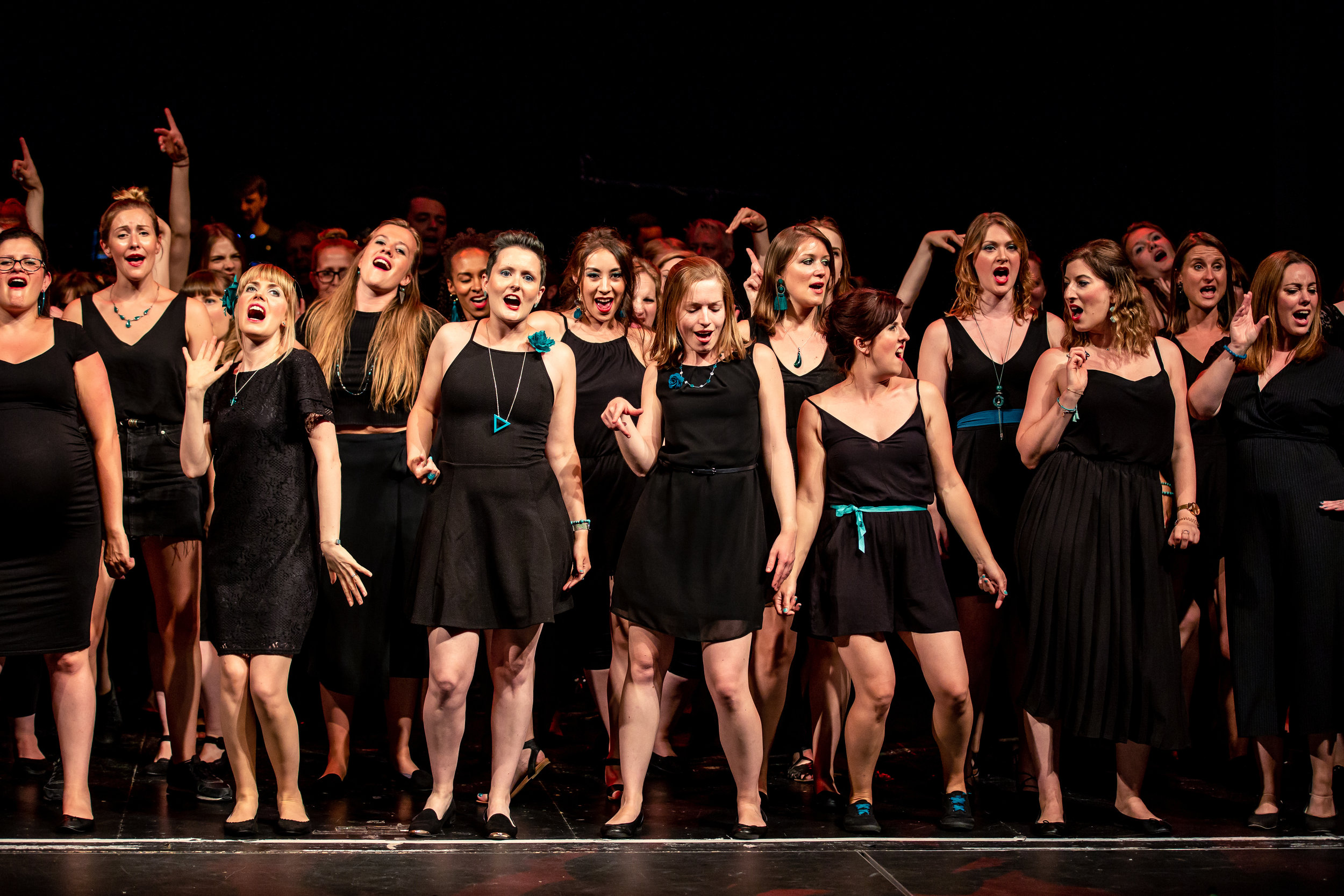Starling Arts: why joining a choir will help you at work
/Long-time choir member Jess shares her story of how joining a Starling Arts choir in her spare time helped her professional life.
That was never the reason I joined a choir. To be honest, I never put a huge amount of thought into joining the choir. A former colleague suggested it to me one day and I thought “hmm, why not? 🤷🏻♀️”. The reasons I’ve stayed for nearly eight years are many, but the most unintended of all is how much the soft skills I’ve learned through singing in a Starling Arts choir have helped my work life.
I work in the charity sector as a campaigner, trying to convince politicians, businesses, and the general public to change policies and actions to support our charity’s stakeholders’ lives. It’s a varied job which requires a lot of varied skills - the so-called “soft skills”. These kinds of skills are much harder to teach in a one-day seminar in some stuffy space.
Why not do what I did, and gain them unexpectedly in a choir? Bonus: you’ll have a lot of fun and make a lot of friends along the way.
The Starling Arts School of Soft Skills and how you can benefit.
Calming nerves for public performing
Part of my job is talking in the media - often live, often at the last minute, or presenting to rooms full of people at conferences and events. This can be incredibly intimidating and nerve-wracking. Before I’ve gone on air, I’ve found myself doing breathing exercises taught (and routinely practiced) at Starling Arts by the ever-therapeutic Emily Garsin. “In for 4, hold for 4, out for 8”. It’s become second nature, and I know it’ll help slow down my breathing and calm my nerves. Once you’ve got used to singing and dancing on stage, you know you can get used to publicly performing in other ways. Practice makes perfect, and Starling Arts has given me so many opportunities to routinely practice this skill in times which feel less pressured than in a work context. It means I’ve got it right there in my back pocket when I need it for work.
Presentation
“Show face” is a concept I, as a deeply cynical introverted extrovert, can struggle with. But it doesn’t just mean whack on your biggest smile and keep it there. It means think about how you’re coming across to your audience. And at Starling Arts, they teach show face beyond just your face, but drill into you how you enter a stage, how you stand on a stage while singing, and the rest. It takes me right out of my comfort zone, which I guess is a sign it’s not something I do naturally - and therefore probably something I need to work on. Walking with confidence and purpose, communicating with confidence (singing and speaking are both ultimately forms of verbal communication)… these are skills I’ve developed in rehearsals, and then adopted when talking to people I need to get on side in work meetings, or even just how to hold myself in a job interview.
Teamwork
At work, you’re thrust together with a bunch of people you don’t choose and have to cooperate to achieve an objective. At choir, you’re thrust together with a bunch of people you don’t choose and have to cooperate to achieve an objective. And some banging harmonies. I’ve found, the more people you meet, the more you get used to dealing with lots of different personalities and approaches, and how to manage them. And in a choir, you can’t do it alone. You need your team. And it’s a lot more fun when you get on with them. The same is definitely true for work.
Jess singing with members of the Starling community
Listening
Choirs singing without listening to each other tend to be awful. And there’s a fine art to listening while singing. You need to sing your bit as much as you need to be listening to what others are singing; whether that’s to know when to come in, to sing in perfect unison with each other, to get your blend as one voice, or simply to avoid some hideous bum notes. The same can be said for working with others. You need to listen to where others are at as much as you need to get your point across. You need to listen to the cues of when to hold back, and when to launch into your part. Listening has been a vital skill in people management. Sharpening my ears every week at Starling Arts has honed this, and helped me be a better colleague and manager.
Building your networks
‘Networking’. What a dreadful word. I prefer community, and maybe that’s another reason I’ve stayed at Starling Arts for so long - because so do they. Starling Arts constantly champions the importance of community, and has given me a huge and warm one to be part of. We are a big network of people who love singing and music. But ultimately, we’re a big network of people. Just like your work colleagues are. I’ve got to know people who work in the charity sector via Starling Arts. I’ve got to know people also interested in politics. I’ve found people keen to volunteer and fundraise for charities. And I’ve worked with people who are friends with other Starling Arts singers in ‘the real world’. It humanises people. Your work self and your real-world self are not generally worlds apart, and it’s nice to have other ways in to talk with people and get to know your colleagues.
I didn’t set out to gain these skills when I joined a choir. I just wanted to sing. But what I’ve gained in both my work and my personal life stretches far beyond “just singing”.
Jess




